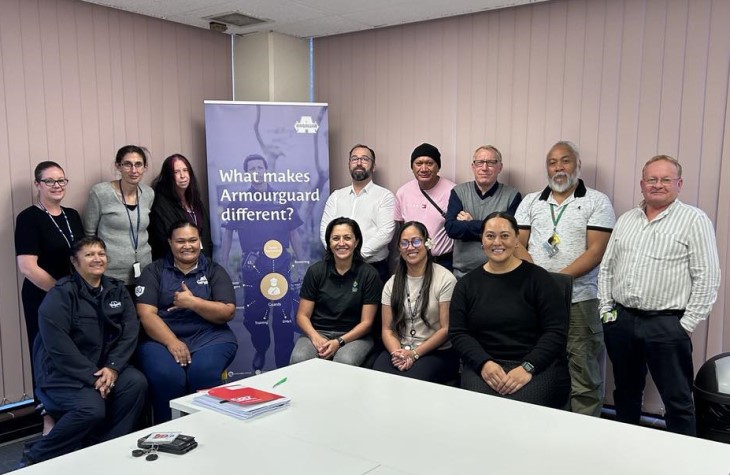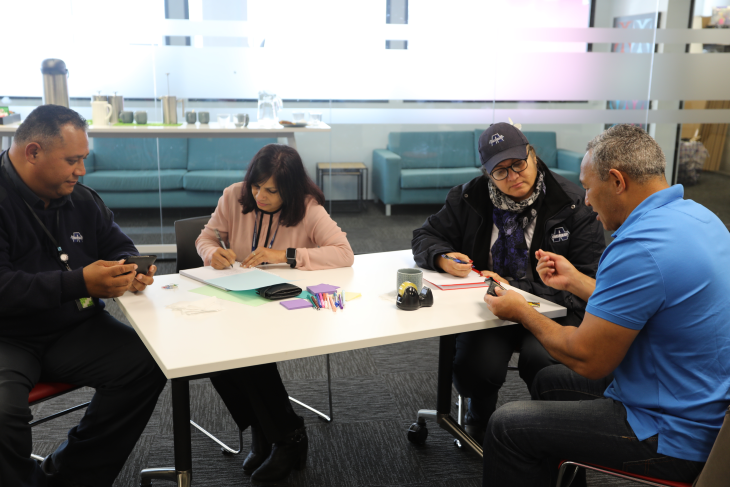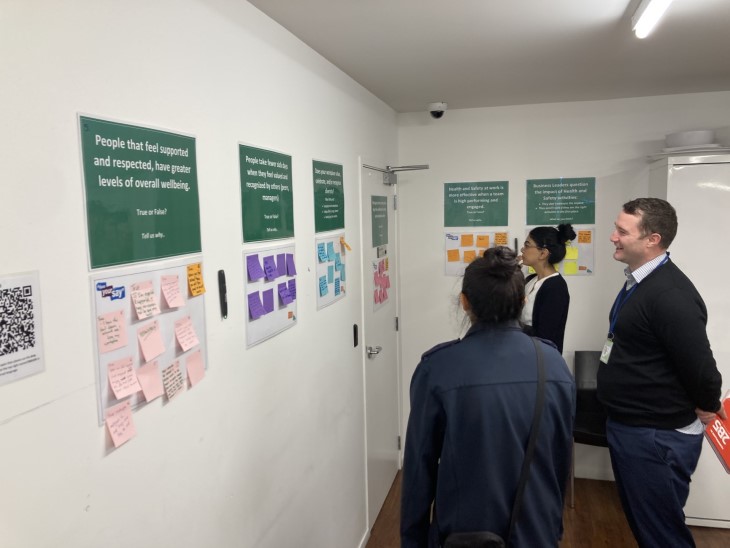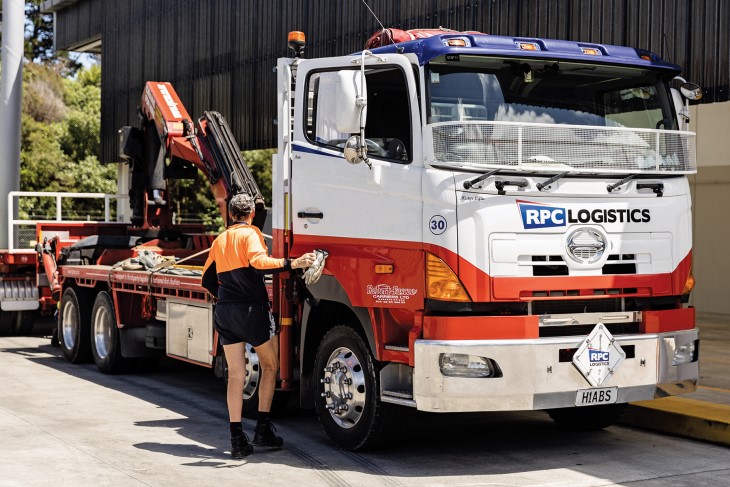ACC grant helping to build safety culture

Too many New Zealanders are still being harmed at work. Creating a culture focused on health, safety and wellbeing can make a huge impact — and starts from the top.
Warwick Stenson clearly remembers the day he realised he wanted to do more for his staff.
“When I first came on board, as I was leaving a meeting, I introduced myself to some of the staff that were there,” he recalls.
“One guy hugged me and said he’d been there for 15 years, and he’d never had a senior manager come to say hello. I bought him a coffee and we had a chat.
“That’s really stuck with me since. And now it’s turned into a regular thing where senior managers make a point to go to three or four sites each week to check in with staff. It’s something simple that I think makes a massive difference.”
Work360 fostering health and wellbeing
Warwick joined Armourguard in 2022 as the North Island Metro Manager. Armourguard employs around 1,200 staff and provides security services for commercial, domestic, industrial and government organisations all over the country.
Armourguard is one of four companies involved in the Work360 initiative (previously known as Workplace Wellbeing Ecology) which is led by The Cause Collective and funded by an ACC Workplace Injury Prevention Grant.
The initiative was originally established in 2018 to identify, test and refine approaches to improving the health and wellbeing of businesses with a high number of Māori and Pasifika employees.
Māori workers are 18 per cent more likely and Pasifika workers 12 per cent more likely to have to make an injury claim than European workers, according to AUT’s Workplace Safety and the Future of Work report.
The initiative follows a four-step design phase which involves bringing together frontline staff and executive leadership to co-design innovative solutions.

Acting on staff feedback
As part of its involvement, Armourguard has been putting in place new activities and actively engaging with its staff to encourage them to raise their wellbeing issues and concerns.
“It’s challenging to involve everybody in everything when you support a team who operate 365 days a year, 24 hours a day, across hundreds of sites,” Warwick says.
“But we came up with some ideas and workshopped them together with The Cause Collective, they’ve really helped us enhance our thinking and what we already had in place.
“Things like shout-outs in staff newsletters and koha, fortnightly wellness meetings, suggestion boxes for anonymous feedback, or an around-the-clock team barbeque where we involve people from different shifts.
“And we’re following through on the feedback. They’re often things that don’t cost a lot of money or take too much time, but people can see you’re putting in the effort, which often leads to more ideas or communication lines that have opened.”
Focus on wellbeing pays off
The national security firm has already seen its efforts making a difference, both for its people and business-wise.
“When I first started, we were losing around ten staff a week and bringing on two new ones, and spending thousands of hours on external contractors. We were going totally in the wrong direction,” Warwick says.
“We’ve turned that around to the point where we’ve had no one leave this week and four new people have come on board.
“We want to retain our staff, and our people want to feel seen – and that’s what it’s all about really.
“We can never sit at head office and think we know everything. That’s the biggest mistake companies make. You’ve got to go and listen to your people.”

Leadership plays key role in safety
Research consistently shows an undeniable relationship between the activities of leadership and the rates of injuries. Improving safety culture increases safety participation and compliance, which leads to reduced safety-related events and less injuries.
So, what are some things you could do? A WorkSafe report from 2023 of almost 2,500 employers showed a shift to more mature safety cultures. The most mature cultures exhibit leadership that creates a:
• shared responsibility, with two-way employer-worker dialogue
• desire to care for wellbeing and safety of others (manaaki)
• holistic view – physical and psychosocial (across contexts)
• strong, evolving culture
We know business leaders continue to seek New Zealand and industry-centric products and services that are relevant and easy to access. If you haven’t already, look at guidance from organisations like the Business Leaders’ Health and Safety Forum, the Health and Safety Association of New Zealand (HASANZ), New Zealand Institute of Safety Management (NZISM) and many more, including industry-led groups.
“We’re going to keep learning and making improvements, it’s something we know we’ll always do,” Warwick says.
“Once everyone started seeing the results, they realised the time and effort we put into it is worth it.”
More info on Work360
For more information about Work360 (enhancing workplace wellbeing to positively impact engagement and productivity), contact Nicola Dennison at The Cause Collective at nicola.d@thecausecollective.org.nz





